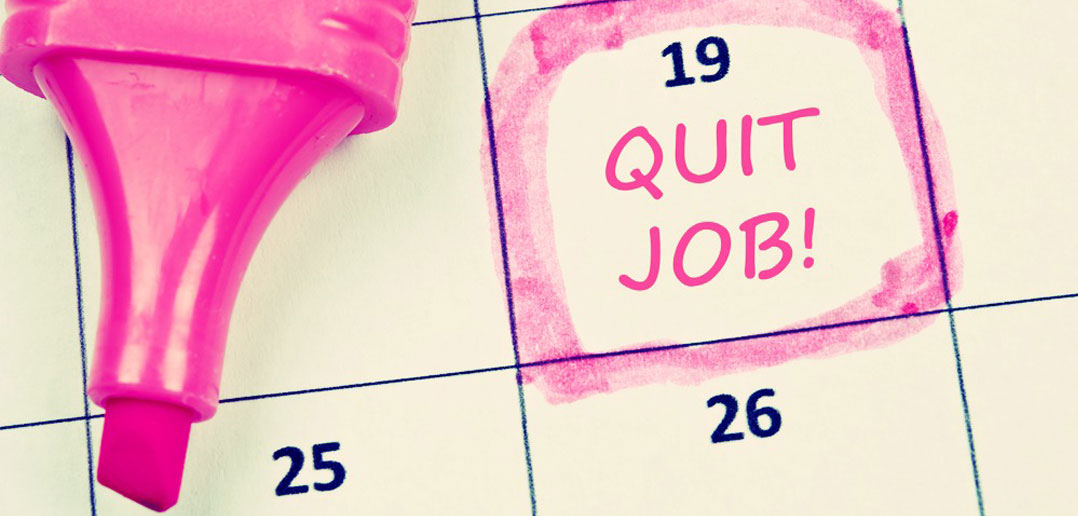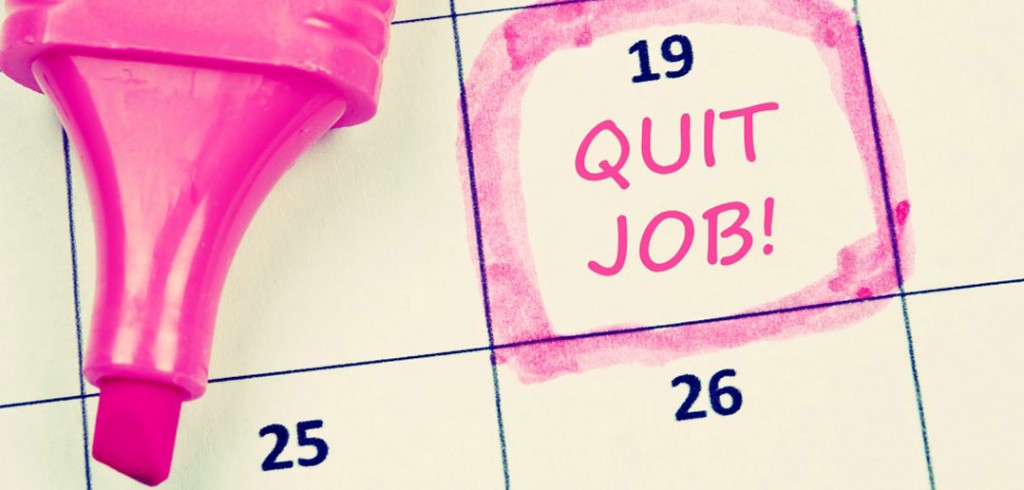If your reasons for resigning are quite negative, it can be tempting to give your boss and the rest of the company a piece of your mind as your last hurrah. However, in the modern, connected world, resigning via a marching band might not be the best option.
The chances are that you’ll cross paths with your old boss or colleagues again. Many areas of business are smaller than you think, and in a world where you’re only a few connections away from a bad recommendation on LinkedIn, it’s rarely worth risking bad blood.
At the very least, remember that you’re going to have to work a notice period. Your last few weeks could be made a whole lot worse if you’ve already filled your employer in on all of their misgivings. If they’re not very good at managing you in the first place, telling them so is unlikely to induce a remarkable turnaround.
Download our resignation letter template here >
Make sure you can work
Before you make the decision to leave, go over your contract with a fine tooth comb and make sure your future plans match up with what you’re legally able to do.
Some companies may insist that employees – particularly senior ones – can’t work for their direct competitors for a length of time. If you’re planning on starting your own business or going freelance, and intend to use your existing contacts to start, make sure you’re watertight on any legal issues to do with poaching clients and partners.
You’ll also want to be aware of your notice period. Depending on how long you’ve been with the company you may be required anything from a weeks notice all the way up to a few months.
Resign in person
It’s always recommended that you make the first step of the process in person, albeit with a professional resignation letter in hand. The personal touch will add to the positive lasting memory of you within the company. Remember that you don’t have to explain your reasons for leaving – and probably shouldn’t – but be prepared for them to ask you. Have a non-committal answer ready which will prevent further questioning while not giving too much away.
The chances are that if you’re leaving there is something that you’re not happy about and once the subject’s opened up, you could start to admit things that sour the relationship. By telling your line manager first, you’re ensuring they won’t hear it on the grapevine. Hearing about your impending departure over lunch from a colleague, is not going to go down well with your boss.
Now about that letter…
The perfect resignation letter is short, formal and friendly
When it comes to deciding whether to send a formal resignation letter or not, it’s a no-brainer. Not only does it give you the comfort blanket of having your resignation in writing, but it gives an important finality to your decision to quit.
Start off with the basics, that you’ll be leaving your position and when your last day will be. This gives an unequivocal tone to your resignation and closes the door for counter offers. Although the thought of a counter offer might be attractive, the chances are that the new offer is unlikely to change the fundamental reasons why you decided to leave in the first place.
From here, make sure that you thank your boss – even if you don’t feel like it – and use this as an opportunity to explain some of the accomplishments you’ve made. Finally, finish with a message about your commitment to proactively ensuring the handover is as seamless as possible.
This approach will leave a positive impression of you in your employer’s mind. Additionally, if a reference is requested in the future, someone in the human resources department might only have your personal file and this resignation letter to go off. Make sure it sets the record straight and presents you in the best possible light.
If you’re unsure of what to write, download our resignation letter template here.
Don’t quit when you most want to
This applies to the overall decision to quit as well as picking your moment. Firstly, if you feel like quitting because you’ve just had enough, give yourself a short time to really prove yourself. Hold on, overcome your seemingly insurmountable problem, and make sure you finish on a high.
Secondly, once you’ve made the call to go, don’t actually do it on a bad work day. Wait until you’re in the most positive before going for it. As we’ve already mentioned, it’s rarely worth airing your dirty laundry, and the chances of the floodgates opening are much more likely if you decide to quit when you’re feeling frustrated or your boss has belittled you in front of your co-workers for the umpteenth time.
Wait until you’re feeling more content, and calmly go about the process. If you know your boss won’t take on board any constructive criticism, it’s not worth saying and is only likely to create animosity. The satisfaction you’ll get from telling them where to stick their quarterly progress reports is probably not worth the bad reference you’ll be stuck with for all eternity.
Do it on a Friday
The frequency of job movement is clearly on the rise, with studies suggesting 91% of millennials intend on being at their job for less than 3 years. But what’s the best day to bite the bullet?
According to Sarah Sutton Fell, CEO of Flexjobs, it’s worth waiting till the weekend “especially if you’re in a less-than-desirable situation at work”. According to Fell, the later the better, as it can help “everyone involved to avoid the post-meeting awkwardness”, giving them the weekend to take in the news and mull over the best way to move forward.
It also gives you the opportunity to prepare yourself to navigate the potentially difficult notice period, bringing us nicely onto…
Don’t take it easy
Even if you have animosity for your soon to be ex-employer, you want their last memory of you to be as positive as possible. Remembering that, after all, these are the people that could be giving a reference to your new place of work. Beyond continuing to work hard, make sure you implement a clear plan to hand over, as well as completing as many of your current projects as you can.
Nothing puts a lasting positive memory in your employer’s mind like a smooth transition to the person replacing you. Leave a description of your day to day work, ongoing relationships and best practice for important elements of your job. You should always aim to leave on good terms
Matt Arnerich is the content writer for leading graduate recruitment agency Inspiring Interns, check them out for graduate jobs and internships.


